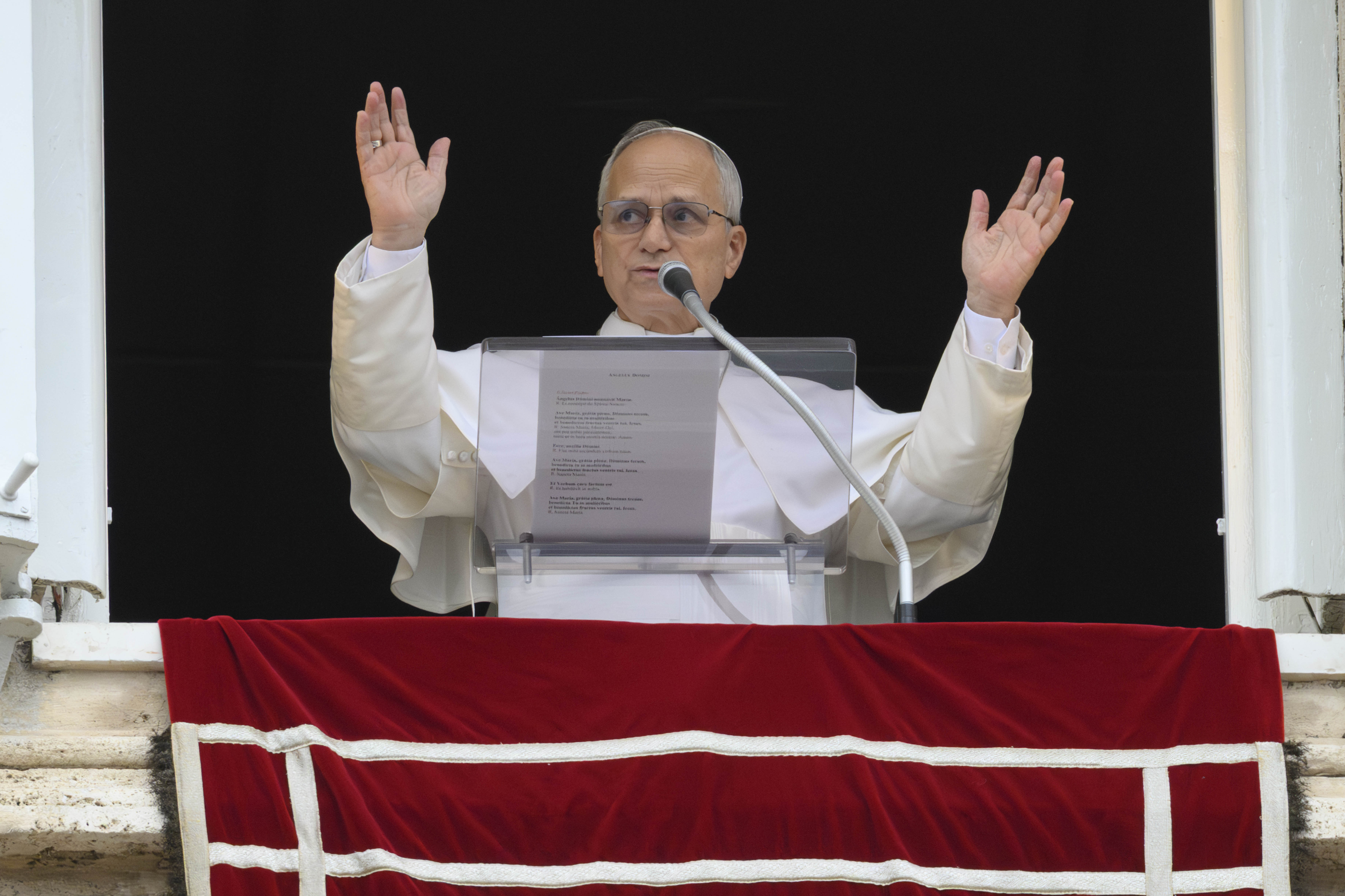Poland tries to restore rule of law in the face of a hostile president
WARSAW — Poland’s centrist government is pushing to restore the rule of law undermined by the previous populist administration — but the country’s divided politics mean the chances of success are slim.
The justice ministry presented its plan on Thursday — an effort to fulfill a key election promise of the coalition government led by Prime Minister Donald Tusk, which took power in late 2023.
The key issue is figuring out what to do with thousands of judges appointed under the former Law and Justice (PiS) party government in a process that both Polish and European courts ruled was flawed and undermined judicial independence.
“We’re about to decide what to do about these so-called neo-judges and how to handle their cases so that court proceedings move faster without triggering lawsuits in European courts — mainly the European Court of Human Rights — that end up costing the Polish government in compensation,” Justice Minister Waldemar Żurek told POLITICO in an interview, adding that the previous judicial nomination process had “infected” the court system.
Restoring the rule of law is the main job for Żurek, a former judge brought in by Tusk this summer to roll back PiS’s judicial overhaul and hold its officials to account.
Under PiS, which ruled Poland from 2015 to 2023, relations between Warsaw and Brussels soured due to growing concerns that the government’s changes to the judicial system were undermining the EU’s democratic rules. In response, the European Commission froze billions in EU cash, while the EU’s top court levied massive fines against Poland.
Just weeks after taking power, Tusk was able to get the Commission to release €137 billion on the promise that he would end the rule of law dispute by bringing Poland’s justice system back into line with EU norms.
But that early effort was stymied by slow government action and by a hostile PiS-aligned President Andrzej Duda, who vowed to veto any legislation undermining PiS-era legal reforms.
Newly elected President Karol Nawrocki, also aligned with PiS, is also vowing to resist any changes to the system set up by the previous government.
Speaking while on a visit to Estonia on Friday, Nawrocki said he would study Żurek’s proposal, but that the minister’s recent actions “do not inspire optimism,” accusing him of “brutally” violating the law and the constitution.
Politicizing the courts
Poland’s problems with the rule of law date back to the political takeover of the National Council of the Judiciary (KRS) by PiS in 2018. PiS stacked the judge-appointing body with judges elected by the parliament, which the party controlled at the time, while earlier KRS members had largely been chosen by judges themselves.
Poland’s Supreme Court and Europe’s top courts — the Court of Justice of the EU and the European Court of Human Rights — found the KRS lacked independence and verdicts issued by about 2,500 KRS-appointed judges are at risk of being overturned.

The ECHR is currently holding off on resolving several hundred cases concerning such judges, pending Poland’s attempt to address the issue. The court gave Poland until November to fix it.
According to Żurek, Poland is paying dearly for the mess PiS created as it attempted to build what he called “an authoritarian system,” in which courts would protect ruling party interests.
Poland was hit with 3 billion złoty (€700 million) in penalties from the Court of Justice of the EU, and has so far paid 5.5 million złoty in compensation for rulings issued by improperly nominated judges.
The Tusk government managed to limit new nominations by the KRS, but now wants to take a sledgehammer to the system set up by PiS.
New court system
Żurek’s proposal would allow judges first appointed by the KRS to keep their jobs, but anyone who the KRS promoted would have to return to their old post, and they’d have to take part in recruitment contests to climb back up the hierarchy. KRS-appointed judges would be barred from the Supreme Court, where they currently account for about 60 percent of the justices, and that court’s top judge, Małgorzata Manowska, would be ousted.
The KRS itself will also undergo an overhaul when the terms of its members expire in April. Żurek aims to use legislation enacted by PiS for the Tusk-led parliamentary majority to vote in replacements. Unlike under PiS, the list of nominees will be prepared by other judges and then presented to parliament in a bid to end the politicization of the KRS.
Żurek said his reform proposal is an effort at a compromise. “There were calls to dismiss them all and make them face disciplinary proceedings. We’re not doing that,” he said. “There are different categories of these so-called neo-judges. KRS’s involvement in some nominations was very limited.”
But the reaction from PiS is fierce.
“Waldemar Żurek is a man who should spend many, many years in a state prison — and I believe he will,” PiS leader Jarosław Kaczyński said Tuesday.
Żurek is already under legal threat from the association of judges linked to PiS, which is pursuing a criminal complaint alleging he kept a crocodile at home in breach of Polish animal welfare regulations.
“They keep bothering me about the crocodile. It’s a funny story, but I can’t talk about it right now because there’s an ongoing criminal case,” Żurek said.
A hostile president
Although Tusk’s coalition has the votes in parliament to pass his proposal, it doesn’t have the votes to override a Nawrocki veto.

PiS is gearing up to battle Tusk’s centrist Civic Coalition for power in the 2027 parliamentary election, and is working to scuttle the government’s program.
“I believe that the president wants to bring about a change of government, so all reform bills, all bills that would even improve the lot of citizens, in my opinion, could be vetoed,” said Żurek.
If the effort fails, Żurek said he has a “Plan B,” but he gave no details.
That puts the government in a bind, said Jakub Jaraczewski of Reporting for Democracy, a think tank focused on rule of law issues in Europe.
“You can insist on sticking to the letter of the law, but that means clinging to standards designed for a normal, democratic and pluralistic system — not one that’s broken and needs fixing,” Jaraczewski said.
“Ignoring Polish law and following EU law and the European Convention on Human Rights directly is a nice idea, but Poland is a very formalistic country. Everything here is regulated, and people expect national law to be the main reference point, not some creative reinterpretation of foreign rulings,” Jaraczewski added.




















:quality(85):upscale()/2023/09/18/918/n/1922398/a1136b676508baddc752f5.20098216_.jpg)
:quality(85):upscale()/2025/10/09/670/n/1922283/00b944c868e7cf4f7b79b3.95741067_.jpg)
:quality(85):upscale()/2025/10/15/765/n/1922398/29c37a6e68efd84bb02f35.49541188_.jpg)
:quality(85):upscale()/2025/09/09/891/n/1922283/7222624268c08ccba1c9a3.01436482_.png)
















